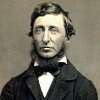“ The nearer the citizens are drawn to the common level of an equal and similar condition, the less prone does each man become to place implicit faith in a certain man or a certain class of men. But his readiness to believe the multitude increases, and opinion is more than ever mistress of the world. ”
Alexis de Tocqueville, Democracy in America (1840). copy citation
| Author | Alexis de Tocqueville |
|---|---|
| Source | Democracy in America |
| Topic | readiness faith |
| Date | 1840 |
| Language | English |
| Reference | |
| Note | Translated by Henry Reeve |
| Weblink | http://www.gutenberg.org/files/816/816-h/816-h.htm |
Context
“Men living at these aristocratic periods are therefore naturally induced to shape their opinions by the superior standard of a person or a class of persons, whilst they are averse to recognize the infallibility of the mass of the people.
The contrary takes place in ages of equality. The nearer the citizens are drawn to the common level of an equal and similar condition, the less prone does each man become to place implicit faith in a certain man or a certain class of men. But his readiness to believe the multitude increases, and opinion is more than ever mistress of the world. Not only is common opinion the only guide which private judgment retains amongst a democratic people, but amongst such a people it possesses a power infinitely beyond what it has elsewhere. At periods of equality men have no faith in one another, by reason of their common resemblance;”
source


